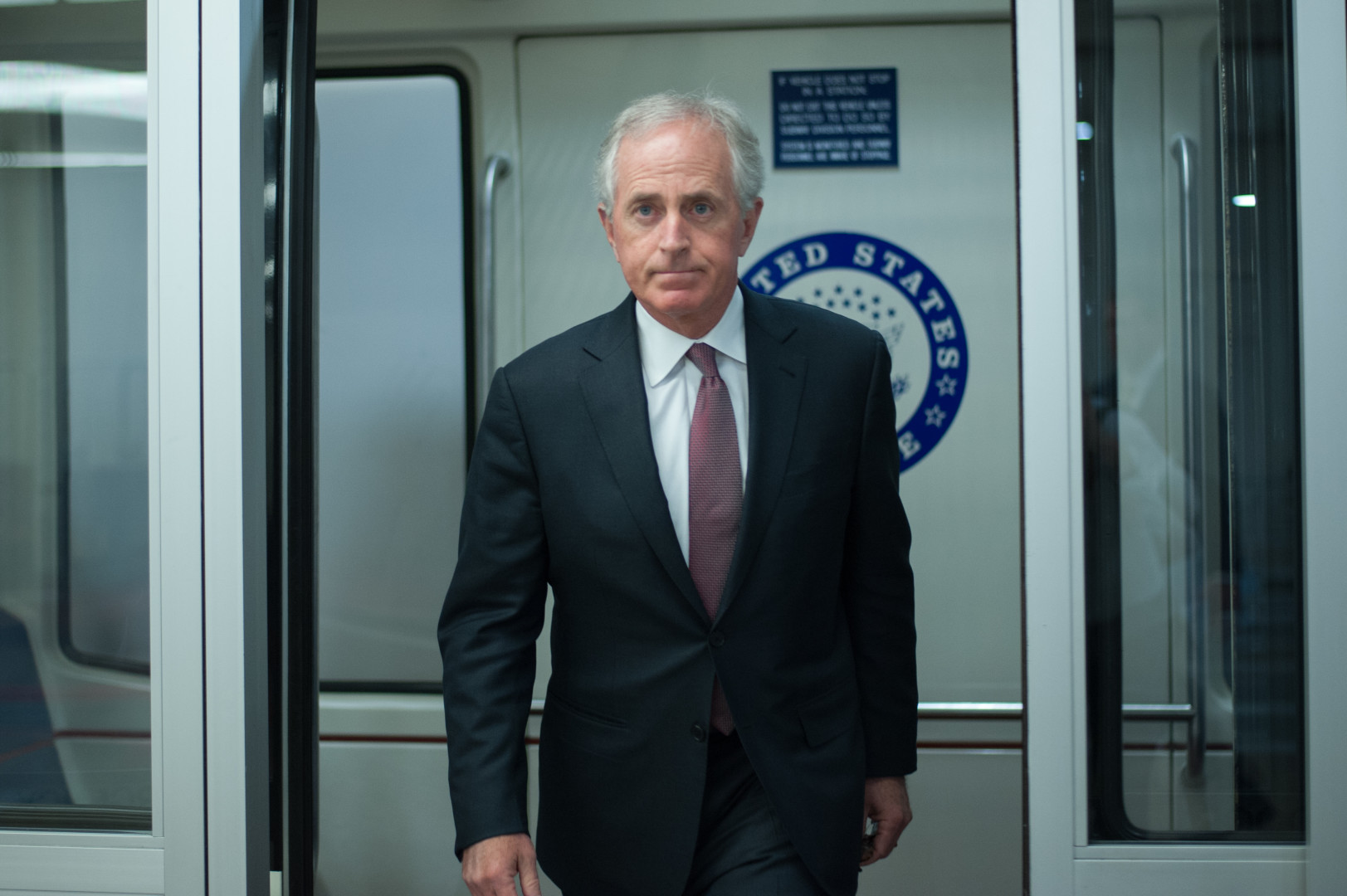May 9, 2016 at 7:29 pm ET
- Share on Facebook
- Share on Twitter
- Share on LinkedIn
- E-mail to a friend



Republican lawmakers on Monday were all over the map on Trump, ranging from full-throated support to continued disbelief that the real estate mogul will top the party’s ticket this fall.
“Donald Trump is talking directly to the American people about concerns they have,” said Sen. Jeff Sessions (R-Ala.), the only senator to publicly back Trump prior to the end of Sen. Ted Cruz (R-Texas) and Ohio Gov. John Kasich’s campaigns. “It is sadly true that Republicans and Democrats have somehow lost touch.”
“In a primary you can double down on some of your tough, hardcore positions and just drive up the vote. But in the general you can’t do that. It just doesn’t happen,” reflected a resigned Sen. Jeff Flake (R-Ariz.), who has become one of the loudest anti-Trump voices among Senate Republicans. “You’re not going to all of a sudden find Hispanics coming to you by doubling down on deporting 11 million illegals or on the wall.”
But most Republican senators fell awkwardly in the middle somewhere, offering up lines that fell short of a full endorsement or decidedly avoided the topic altogether.
When asked about her position on Trump, Sen. Lisa Murkowski (R-Alaska) remained quiet for a few seconds before changing the subject. “I’m going to go vote,” she told Morning Consult on her way to a procedural motion. “We’re not voting [for president] today,” she said, adding that she didn’t know yet where she would come down on Trump. “I’m voting on this right now.”
Sen. Roy Blunt (R-Mo.), a member of the conference leadership team whose seat is up in November, directed Trump inquiries to his office. He added that he would not be attending the party’s July convention in Cleveland before revealing his clear frustration with the line of questioning.
“I have said no, but I’ve said no now about 25 times,” he said. “Sometime in the next 24 hours I may call a total moratorium on any Trump questions in this building.”
A Blunt spokesman said in a follow-up email that the Missouri Republican “had said all along” that he will back the party’s nominee.
Senate Judiciary Chairman Chuck Grassley (R-Iowa) persistently reframed the Trump question to be about why he doesn’t want Democratic front-runner Hillary Clinton winning in November. “I’m going to do everything I can do to make sure we don’t have a third term of the Obama administration,” he said.
Grassley, who is facing steady criticism for refusing to give President Obama’s Supreme Court nominee a committee hearing, brushed aside concerns that a Trump nomination might effect his own re-election prospects.
“Remember, everybody thought Reagan was going to take us down to defeat in 1980 and I ended up getting 100,000 more votes than Reagan got,” he said. “So you’re talking to the wrong person when you’re mixing up Senate races and presidential races.”
Senate Foreign Relations Chairman Bob Corker (R-Tenn.) also refrained from a direct endorsement of his party’s de facto nominee.
“We have always planned to support the nominee and, uh, you know there have been communications from our office about various foreign policy issues,” he said, adding he planned to continue to provide support on that front if necessary.
He added that he did not know whether he would meet Trump later this week when the presidential contender stops by Capitol Hill. “We’re busy doing our job,” he said, as he headed towards the third iteration of a doomed procedural motion stalling the chamber’s appropriations work.
Now indisputably his party’s presumptive nominee, Trump is tasked with transitioning his campaign from an insurgency into a general election organization capable of taking on the Democrats in the fall. A key challenge will be enlisting party elites who are deeply embedded within the party’s nationwide infrastructure and have so far kept their distance from the controversial businessman.
Republican leaders in Congress are still wary of embracing Trump, even now that all other GOP rivals have bowed out of the presidential race. Senate Majority Leader Mitch McConnell (R-Ky.) has floated his lukewarm support for Trump, but said the New York real estate mogul has an “obligation” to unite the party. House Speaker Paul Ryan told CNN last week that his party’s de facto nominee had not yet earned his support.
“I’m just not ready to do that at this point. I’m not there right now,” the Wisconsin Republican said.
Many vulnerable Republican senators up for re-election this year were scarce Monday evening. But Sen. Pat Toomey (R-Pa.), one of Democrats’ biggest targets this election cycle, called Trump’s remarks about women “appalling” in an op-ed published Sunday.
“There could come a point at which the differences are so great as to be irreconcilable,” Toomey wrote on Philly.com. “I hope that doesn’t happen, but I have never been a rubber stamp for my party’s positions or its candidates.”
Trump is scheduled to meet with GOP lawmakers later this week, including two meetings with Ryan on Thursday — one with the entire House leadership team and another just with the Wisconsin Republican and Republican National Committee Chairman Reince Priebus.
Sen. Lindsey Graham (R-S.C.), among Trump’s earliest and most stringent Republican critics, told reporters that the meetings would serve largely as a test of how much common footing Trump and Ryan already share.
“There seems to be a big disconnect on some issues, things that have been traditionally a Republican philosophy,” he said. “Can you find common ground with the nominee? I think that’s Paul’s goal.”
Jon Reid contributed to this report.